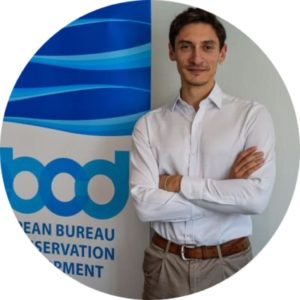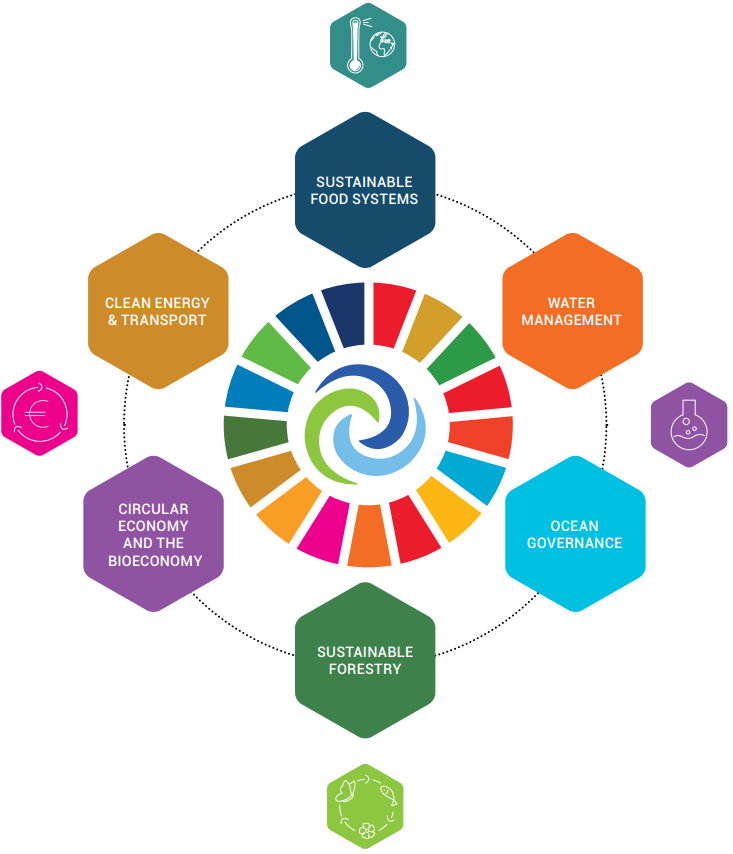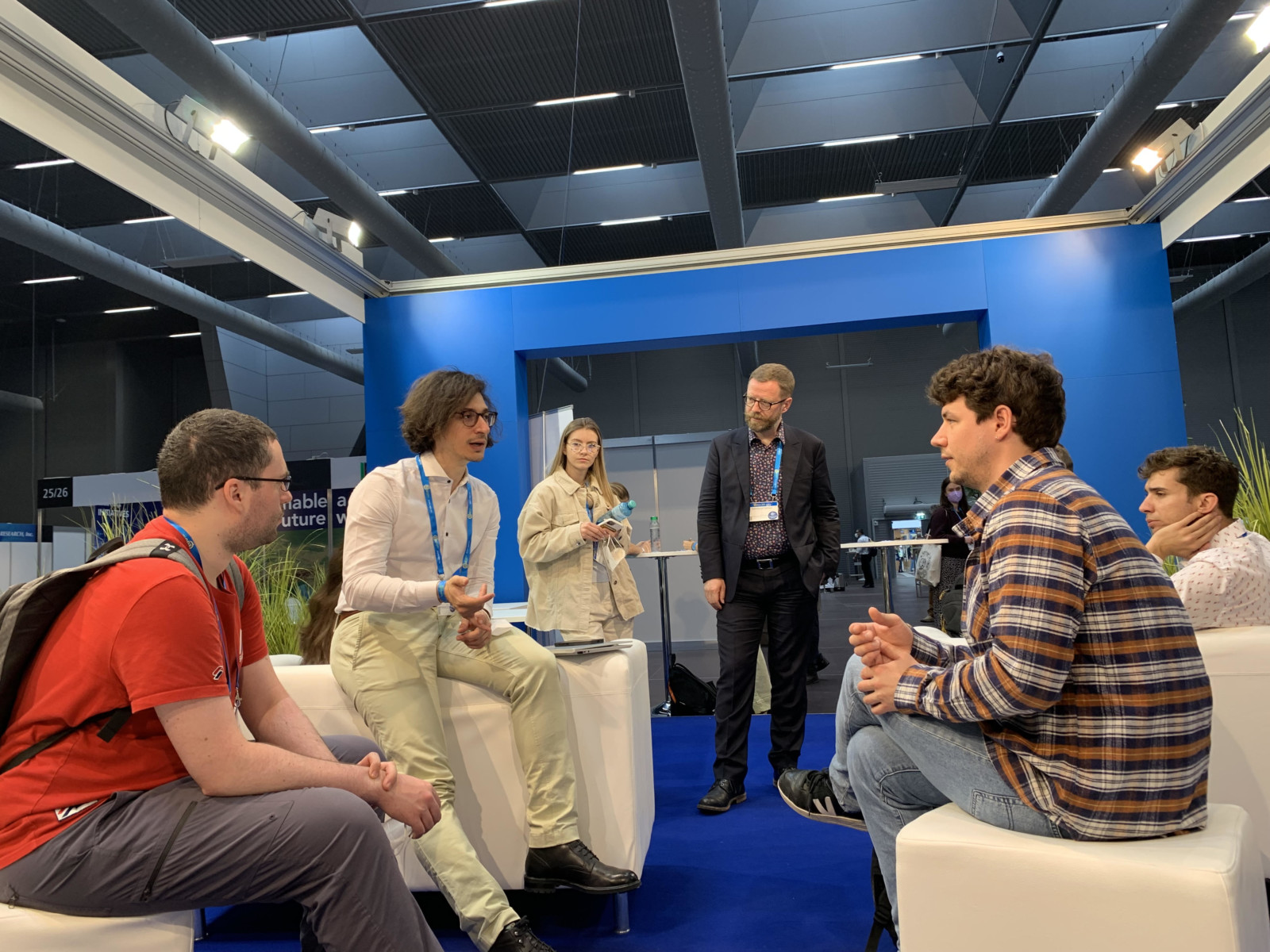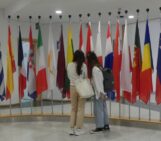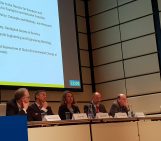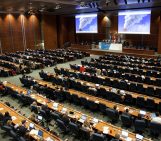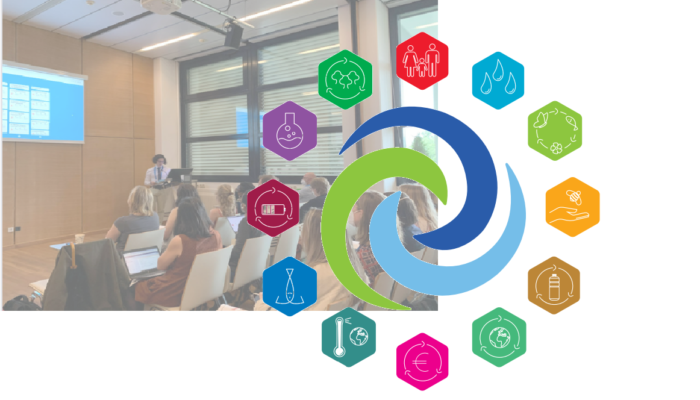
This month’s GeoPolicy blog features an interview with Ilias Grampas, Manager of the European Parliament Intergroup (EP) on ‘Climate Change, Biodiversity and Sustainable Development’ and Deputy Director of the European Bureau for Conservation and Development (EBCD). Ilias was kind enough to answer some of my burning questions about the role of the EP Intergroup in connecting Members of the European Parliament with scientists and society, as well as some of the key lessons that he’s learnt along the way.
The Intergroups of the European Parliament bring together Members of the European Parliament (MEPs) from different political groups and committees who are interested in an area or topic that is also of high importance to society and external stakeholders. There are currently 27 different European Parliament Intergroups that aim to promote an exchange of information and bridge the gap between MEPs and researchers, industry representatives, and the public.
The Intergroup was first established in 1994 and is one of the longest-standing and well-respected Intergroups in the European Parliament. It brings together MEPs from across all political groups and parliamentary committees, allowing MEPs to listen, debate and shape ideas and policies based on contributions from the different stakeholders including researchers and academics. In this way, the EP Intergroup on ‘Climate Change, Biodiversity and Sustainable Development’ aims to find sustainable, science-based solutions to some of the greatest and most complicated challenges of our times. It is also an EP Intergroup that EGU has worked with extensively over the last few years, particularly during our annual science for policy event and science-policy pairing scheme, due to its strong ties with many geoscience-related areas!
Of course, working on so many overarching issues and on the science-policy interface is no easy feat! I had the pleasure of interviewing Ilias Grampas, Manager of the EP Intergroup and Deputy Director of the European Bureau for Conservation and Development (EBCD) about what some of these challenges are and how he works to overcome them!
Thank for taking the time to chat with me today, Ilias! Before we get started, could you tell me a bit about yourself?
With pleasure! For the past 5+ years, I am living and working in Brussels as an EU Affairs professional, currently managing the activities of the European Parliament Intergroup on ‘Climate Change, Biodiversity and Sustainable Development’ and serving as Deputy Director at the European Bureau for Conservation and Development (EBCD), which is an international environmental NGO. I am therefore passionate about the environment, climate action and sustainability, moreover well-experienced in developing and executing strategic advocacy & outreach to policy-makers and the broader audience.
What is the overarching aim of the EP Intergroup?
Recognising that a sustainable world needs to ensure human well-being, nature protection and economic prosperity for present and future generations, this multi-stakeholder platform of dialogue in the EP aims to look into the solutions and opportunities. This includes today’s and tomorrow’s environmental and socio-economic challenges, such as ecosystem degradation, biodiversity loss and climate change, but also growth, competitiveness and jobs. At the same time, the EP Intergroup encourages strong involvement, dialogue, and close cooperation among all stakeholders, in order to effectively integrate sustainable development principles (looking at the social, economic and environmental pillars) into EU decision-making and policy.
What are the most common activities that the EP Intergroup focuses on?
The EP Intergroup on ‘Climate Change, Biodiversity and Sustainable Development’ builds on political, scientific, and practical expertise to guide the development and implementation of coherent sustainable policies based on scientific evidence. This is specifically achieved via the organization of awareness-raising events and policy discussions (physically at the EP, online, or currently in a hybrid manner) which aim at bringing together MEPs with representatives of the European Commission, Member States and EU Presidency and key stakeholders, such as NGOs, private sector and industry representatives, scientists, experts, and civil society.
How does the Intergroup help connect scientists and research with MEPs?
The science-policy nexus has been well at the core of this EP Intergroup’s mission since its establishment in 1994, as the EP Intergroup supports well-informed science-based policymaking via inter alia connecting scientists with policymakers. It is now more evident than ever, the fact that sustainable solutions are urgent, due to climate change, energy and water needs, or the impacts from natural hazards. On the other hand, the challenges, we as society face, are becoming more and more complex. Towards this, the EP Intergroup warmly welcomes scientists and their relevant research findings as a catalyst for overcoming these issues; it is only policy decisions that are informed by science, that are able to help us build a strong foundation for a sustainable future, so scientists have a great role in helping policymakers to assess the benefits and potential consequences of different policy pathways with accuracy. As a result, MEPs welcome speakers from the research and academia communities at the EP Intergroup events organized, moreover the Secretariat of the EP Intergroup gladly partners with the EGU on an annual science-policy pairing scheme, which concretely offers selected Europe-based EGU members the opportunity to gain insights into the policymaking processes and the types of information policymakers need, while at the same time providing policymakers with key access to scientific expertise.
What are some of the lessons or skills that you’ve learnt from working with the Intergroup?
Personally, I think that through liaising with various MEPs and stakeholders from Brussels and from all around the world on a daily basis, I have had the pleasure to develop hands-on experience regarding policymaking processes’ challenges and opportunities, sharpen my communication skills and develop a solutions-oriented mindset. It is also heart-warming to reflect on the results such platforms can achieve via synergies and partnerships, working together with the most relevant actors to ensure sustainable development, while tackling the current climate and biodiversity crises. As a result,
I would say that the biggest lesson I have learned throughout these years is that collaborative action in policymaking and at the science-policy interface is an essential way ahead, in order to build holistic, inclusive and sustainability-oriented solutions for a better future.
What tips can you give scientists who would like to engage more with the policymaking process?
I would say that when working with policymakers, scientists should take advantage of all opportunities and collaborations available. In doing so, it is key to be aware of the current policy developments, and be eager to engage via building regular interaction channels. As important it is to target key influencers and drivers, it is equally so to shed light on the quality of information, knowledge, and key added value of input, in order to establish a long-term contact, that policymakers value when in search for information. Therefore, always remember to be proactive, clear, accurate, concise, and direct with policymakers, provide them with information that is easy to understand, including infographics, figures, examples, case-studies, etc. To conclude, I believe one must always build for the long-term in all contacts; the science-policy nexus will not work at its best, unless we make it, so we have a common mission there!
If you’re interested in learning more, follow Ilias and the EP Intergroup on Twitter. You can also join one of their upcoming events or consider applying for an Internship with them!
You can read more about the EP Intergroup and their vision in their 2019 Manifesto.

